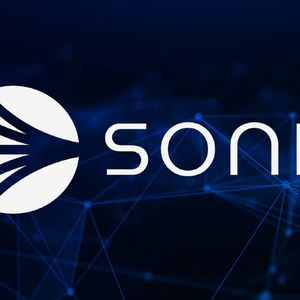Shocking: Trump Fires Copyright Head Amid AI Training and Elon Musk Controversy
4 min read
In a move that sent ripples through the tech and legal worlds, former President Donald Trump reportedly fired Shira Perlmutter, the head of the U.S. Copyright Office, along with Librarian of Congress Carla Hayden. This unexpected decision comes amidst growing debate surrounding the use of copyrighted material to train Artificial Intelligence ( AI ) models, a topic central to a recent report from the very office Perlmutter led. What Prompted the Copyright Office Firings? Reports from outlets like CBS News and Politico, seemingly corroborated by Democratic Representative Joe Morelle, suggest the firings were swift and lacked clear legal basis. Morelle, the ranking member on the Committee for House Administration, didn’t mince words, calling it a “brazen, unprecedented power grab.” He also suggested the timing was no coincidence, linking the termination directly to Perlmutter’s alleged refusal to “rubber-stamp Elon Musk ’s efforts to mine troves of copyrighted works” for AI training. Perlmutter, who took the helm in 2020 during Trump’s first term, was appointed by Librarian of Congress Carla Hayden, who was also reportedly fired this week. Trump himself alluded to the news on Truth Social, his social network, by sharing a post from attorney Mike Davis. While Davis’s post linked to the CBS story, his accompanying text, “Now tech bros are going to attempt to steal creators’ copyrights for AI profits,” added a layer of confusion, seemingly criticizing the outcome despite the apparent alliance between Trump and Musk. The Copyright Office Report and AI Training Central to the controversy is a recent report from the U.S. Copyright Office focusing on Copyright and Artificial Intelligence. This document, part three of a larger series, addresses the complex legal questions raised by AI ‘s reliance on vast datasets, often containing copyrighted works. While the report acknowledges that the outcome of individual legal cases cannot be predetermined, it sets important boundaries regarding when AI companies can rely on “ fair use ” as a defense when training their models on copyrighted content. Here’s a breakdown of key points from the report: Research and Analysis: The report suggests that using copyrighted material for research and analysis purposes in AI training would likely fall within the bounds of fair use . Commercial Use & Competition: However, the report states that using “vast troves of copyrighted works” for commercial purposes, especially when the resulting AI -generated content competes with the original works in existing markets, likely “goes beyond established fair use boundaries.” This is particularly true if access to the copyrighted material was obtained illegally. Despite these points, the Copyright Office report stopped short of recommending immediate government intervention or new legislation, stating it “would be premature at this time.” Instead, it expressed hope that “licensing markets” would continue to develop, allowing AI companies to pay copyright holders for access to training data. It also suggested considering “alternative approaches such as extended collective licensing” to address potential market failures. Elon Musk, AI, and Copyright: What’s the Connection? The report’s stance on fair use and licensing directly impacts AI companies, many of which currently face lawsuits accusing them of copyright infringement. OpenAI, a leading AI research company, is one such entity. Interestingly, Elon Musk is a co-founder of OpenAI (though he later left) and now leads a competing AI startup, xAI (which is merging with X, formerly Twitter). Musk has also publicly aligned himself with controversial views on intellectual property, recently supporting Square founder Jack Dorsey’s call to “delete all IP law.” This position starkly contrasts with the concerns of creators and copyright holders who rely on IP law to protect their work and livelihoods. The alleged link between Perlmutter’s firing, the Copyright Office report, and Elon Musk highlights the intense political and economic pressures surrounding the future of AI development and intellectual property rights. The firings, particularly given the timing just after the report’s release, raise significant questions about the independence of government agencies and the influence of powerful tech figures. What Does This Mean for the Future of AI and Copyright? The situation underscores the deep divide between those who believe AI development requires broad access to data, potentially with relaxed copyright restrictions, and those who advocate for strong protections for creators and their content. The U.S. Copyright Office report attempted to navigate this complex landscape by outlining existing legal interpretations like fair use while encouraging market-based solutions like licensing. However, the reported intervention from the highest levels of government, allegedly influenced by figures like Elon Musk , suggests that the debate is far from settled. The firings could signal an attempt to steer copyright policy in a direction more favorable to large-scale AI training, potentially at the expense of individual creators and traditional copyright principles. This event serves as a stark reminder that the legal and regulatory frameworks governing AI are still under construction and are subject to significant political influence. The outcome of this struggle will have profound implications for the creative industries, the tech sector, and the development of AI itself. To learn more about the latest AI regulation trends, explore our article on key developments shaping AI policy features.

Source: Bitcoin World



